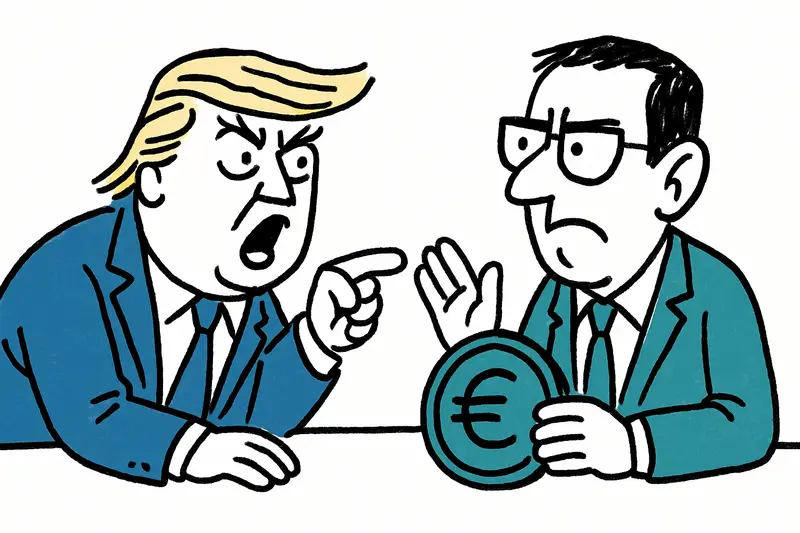US President Donald Trump has hinted that Spain could be expelled from NATO because Madrid refuses to dramatically increase military spending. In Mallorca, people respond with skepticism and explanations.
Confrontation over Euros and Defense
On Thursday, a short, sharp sentence from Washington sparked conversation all the way into the cafes of Palma. U.S. President Donald Trump made Spain's refusal to dramatically ramp up its defense spending the topic – and brought up the possibility of an exclusion from the NATO alliance.
At a White House meeting with the Finnish president it became clear: Trump expects from allies not only words, but clearly higher spending. Madrid, however, sticks to a different course. That fuels tensions that on the ground provoke more improvisation than panic.
What Madrid Says
Prime Minister Pedro Sánchez had already explained that an extremely high spending target for Spain is not practical. Rather than unilaterally investing in armaments, the government wants to keep the budget at around 2.1 percent of GDP and set priorities differently: social benefits, infrastructure, crisis preparedness.
In Mallorca yesterday, in a bar on Plaça de Cort, I overheard several older regulars debating – some found Trump's tone inappropriate, others said Europe must finally act more confidently. No one raised alarms, more head-shakes and mild annoyance.
The Legal Reality
Important to know: NATO has no clear procedure to exclude members. Decisions, sanctions or expulsion are not predefined tools. That makes Trump's proposal mainly symbolic – a threat with political weight, but without a straightforward procedural path.
Militarily, 5 percent of GDP, as some demand, is an unusual requirement; up to now a guideline of two percent had been the target most alliance partners only approached after years.
What This Means for Spain
For Madrid, the debate is uncomfortable but not existential. Spain is embedded in many NATO structures and has good relations with European partners. Domestically, the government uses the issue to explain its priorities: no automatic rearmament at the expense of the welfare state.
For people on the island, the question remains: how much money should go to defense, and how much to everyday life and social programs? The answer reflects a societal attitude that often surfaces here in tapas conversations.
Conclusion
In the short term, everything stays the same: lots of talk, few formal steps. In the long term, however, the push from Washington could put pressure on Brussels and Madrid—depending on how loudly the debate continues in the coming weeks. And yes: in Mallorca people discuss it over café con leche just as in Berlin or Madrid.
Similar News

Valencia: Man Apparently Dead for 15 Years — Skeleton Found After Heavy Rain
In Valencia, neighbors found parts of a skeleton after heavy rainfall — the man is said to have been dead in his apartme...
Mallorcan Artist Dies During Performance in Bautzen
During a circus performance in Bautzen, a 27-year-old artist fell from about five meters off the trapeze and died in the...

Merz in Madrid: Clear Differences with Sánchez on Israel Policy
During his first visit to Madrid, Chancellor Friedrich Merz met Prime Minister Pedro Sánchez — and their views on sancti...

Kerosene Shortage in Hamburg: Two Mallorca Flights Canceled, Further Delays Possible
Due to a technical issue at a refinery, Hamburg Airport cannot refuel as usual at the moment. Two Mallorca connections h...

After a Serious Fall: 29-Year-Old German Dies Following a Hike in the Picos de Europa
On the popular Ruta del Cares, a 29-year-old German woman fell about 50 meters into a gorge. After a helicopter rescue, ...
